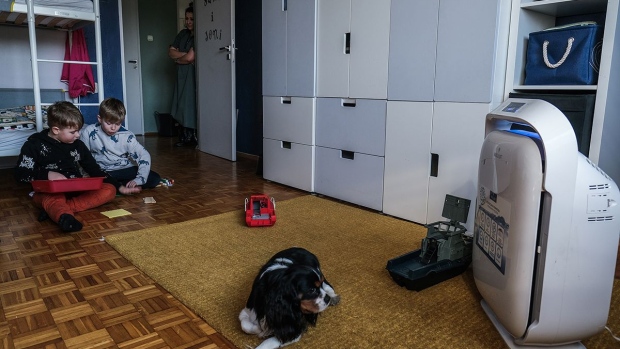Apr 8, 2021
No, the Filter From Your Air Purifier Can’t Be Recycled
, Bloomberg News

(Bloomberg) -- Even before the pandemic, air purifiers were among the most sought-after household appliances. Once governments acknowledged in mid-2020 that the coronavirus could remain in the air for hours, manufacturers struggled to meet demand. As other factories laid off staff, air-purifier maker RGF Environmental Group in Florida more than tripled its workforce, from 140 to 500 people. In Indonesia, sales of Sharp Corp.’s “plasmacluster” purifiers jumped, from about 3,000 units a month pre-virus to almost 13,000 by January 2021.
To be effective against high levels of pollution, purifiers need to run almost constantly, sucking up energy resources as well as debris. And their filters need replacing every few months. Those components—typically a mix of natural and synthetic fibers with some plastic and metal and other coatings—almost always wind up in a landfill. QualityAirFilters.com explains on its website that though an air purifier “may appear recyclable, all of those particles that it has collected while in use make it unsafe to recycle.” All those pollutants end up in the landfill, too.
Most analysts predict annual sales growth will remain in the double digits after Covid-19 has abated. That goes for the U.S., which has long been the industry’s largest market, but also for such places as India, South Korea, and Mexico, where rising wealth and health concerns are spurring purchases. For city dwellers especially, the appliances mitigate a host of modern health scourges—airborne pathogens as well as haze from burning forests and fields, industrial pollution, noxious chemicals, and allergy triggers such as pollen.
“There’s a lot of startups that seem to be doing very well in that industry, and more and more are coming,” says Tom Szaky, founder of TerraCycle Inc., a specialty recycling company. Most air filters “are made in a way that costs more for a garbage company to collect and process” into new materials than they could get reselling the result.
Some companies are trying to control the growing pile of waste. Oregon-based Reitmeier HVAC Services sends used filters to a waste-to-energy plant, for instance, while groups such as TerraCycle will collect them for a fee. Manufacturers, meanwhile, are developing filters that last longer or are easier to dispose of. Commercial systems made by Honeywell International Inc. use ultraviolet light. Some models use washable filters, though these typically don’t meet the highest standard of efficiency. And the reality is, all of the systems consume a lot of power.
©2021 Bloomberg L.P.


